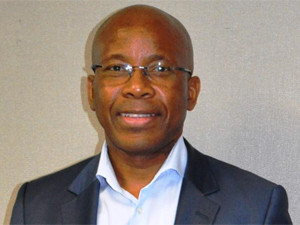
Operators are turning their focus to their business units as a way of stemming the tide of declining voice revenue, intense competition and lower-margin data consumption in their consumer segments.
MTN, Vodacom and Telkom have been coming under pressure, with top line growth all but flat, competitive voice tariffs from the likes of Cell C, and surging data demand that is not offsetting the decline in voice use.
Mteto Nyati, who joined MTN last month as group chief enterprise officer, says he wants the unit to contribute at least 20% to MTN's revenue in three years' time, and boost its growth rate from 25% year-on-year to 50%.
He could not disclose its current contribution to income, but adds this target comes as MTN continues to face challenges in its consumer business, and its "step child" unit needs to step up and contribute to the new revenue streams MTN is seeking. "Those challenges, they are never going to go away."
Key area
MTN sees the business space as a "huge opportunity", not only for itself, but for the entire industry. Vodacom spokesman Richard Boorman adds business is "one of our key growth areas outside the traditional voice business. It leverages the fibre infrastructure that we've invested in to connect our base stations with self-provided transmission."
Vodacom Business accounted for 17.4% of Vodacom's group service revenue in the first half of the year, gaining 5.5% on last year, while cloud, hosting and virtual private network services in SA grew 18% year-on-year. Boorman notes the company wants its business unit to account for 25% of local service revenue in four years.
Nyati notes, however, that achieving MTN's "huge" targets will not be easy, as the operator's culture is largely consumer, and this must shift to a business mindset. He says the company aims to reach its goals by bringing on board IT professionals, such as Alpheus Mangale, add more solutions to its offerings, and make acquisitions. "It is a big shift."
Growth plans
MTN is also open to partnerships so it can extend its reach across all of Africa, where it currently has a presence in 17 countries, says Nyati. He adds it will also expand its network where this makes sense, and is moving towards being able to bundle its offerings together so it can offer an end-to-end solution.
Nyati says he is looking to add more intellectual property to its offerings through acquisitions, which seek to boost its aims of being companies' preferred African partner, aiding local firms that wish to offer their products in underserviced areas, and provide services to governments across the continent. "I've got an acquisition mandate."
Boorman adds Vodacom's plans to meet its revenue targets include rolling out additional services, including fibre-to-the-business, and it has recently launched another data centre with 2 000 square metres of capacity to support cloud services and hosting. He adds, should it successfully buy Neotel for R7 billion, this will add scale and capabilities, making a much more effective competitor to the incumbent in the enterprise space.
Johann Henning, MD of Telkom Business, says the unit is looking at boosting growth by building a solutions-based business through vertical clusters; offering converged solutions by leveraging fixed-line, mobile and data centre services capabilities and consolidating products; and focusing on fibre and high bandwidth products.
Henning says, in the first half of the year, the unit saw its managed data network services revenue gain 14%, while IT business service income grew 23% and metro-Ethernet income increased 40%. He did not disclose how much the unit contributes to Telkom's income, or targeted contribution.
Telkom Business' performance is set to grow through accelerated growth of mobile services to corporate customers, industrialising ICT products for the small and medium enterprise market, as well as growing its share of the corporate ICT market and introducing unified communications to manage voice declines.
Share